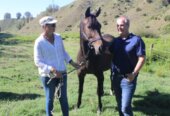Following on from my fellow ward councillor, Crystal Beavis’s comments last month, I would like to reinforce her position. I would also like to give her a vote of confidence as she works incredibly hard for our ward and the district, representing them both well. My advice would be to re-elect her if she decides to stand again.
As Crystal stated Waikato District Council, like many other local bodies in New Zealand is struggling to maintain its assets with rates based funding and she provided some good evidence around inflationary pressures to back this up. However I constantly get asked by ratepayers what council does with all the money as they don’t see any spend in their ward.
Running a district council is a big business, Waikato District Council has over 400 staff and our assets are valued at over $2 billion. This is mostly roading, bridges, water and waste water assets but also includes land, buildings and other items. We spend approximately $150 million a year maintaining and upgrading these assets and only half of this money comes from our 33,000 rate payers. Some comes from borrowing, some from Government subsides, particularly for roading, some from development contributions and some from targeted rates. The whole process is further complicated by having to allow for depreciation. A central government requirement – with a $2.2 billion asset depreciation is a big number. Because the district has many small communities, we have nine wastewater treatment plants and a similar number of drinking water plants, most of which require significant investment to bring up to a compliant standard and we cannot afford to fund this work. That was the big reason for the three waters reform. As this is no longer going ahead, some other reform will be required.
Crystal mentioned underfunding road reseals, this is important as resealing is one of the best ways to reduce loss of control accidents. Over the life of a pavement it should be resealed at least twice to ensure good skid resistance is maintained. As she said we are struggling to meet this target. Our road toll is going up not down, lack of resealing will be one of the reasons.
However even worse, we are massively underfunding our roading pavement asset. The standard design life of our typical pavements is 25 years. Waikato District has an 1800km sealed roading network. For the last five years we have been doing less than 10km of pavement rehabilitation annually and this year we are doing less than 8km which means it would take 225 years to get around our whole network. Twenty years ago we were carrying out 50km of pavement rehabilitation annually and resealing 10 per cent of our network, now we are resealing less than 5 per cent.
What I am highlighting here is that rates based funding no longer works as a way of maintaining our assets. I often get told that it is all the council’s fault as we are top heavy and inefficient. You show me a large organisation that isn’t. Fletcher’s would be a good case in point, I watched them construct a motorway outside my back door and I used to build roads. It was painful to watch. Having been in this council now for just over a year, I think it is not doing too bad a job with what it has, it is actually compliance and regulation that make us inefficient. Much of which comes from central government mandates and being the last man standing for things like leaky homes.
Regardless, New Zealand needs to look at different ways of funding our assets. Local government gets about 10 per cent of the national tax take. This is low by global standards. If you don’t want continued rate rises then the onus is on the voting public to tell this to government. This is why this should have been an election issue. Waikato District Council is looking at double digit rate increase for the next several years just to try and get out of our current hole. This does not even provide a higher level of service or allow us to start adequately reinvesting into our assets to ensure they are properly maintained let alone improved. Double digit rate rises will only allow us to maintain business as usual. Our purchasing power is being eroded by inflation, regulation and compliance.
This is a huge issue for New Zealand and has been lost in all the drama about co-governance and other side issues. Now that we will have a more pragmatic government (I am hopeful) not driven by ideological nonsense perhaps we can get on with the business of running our country properly. That’s my personal view.










